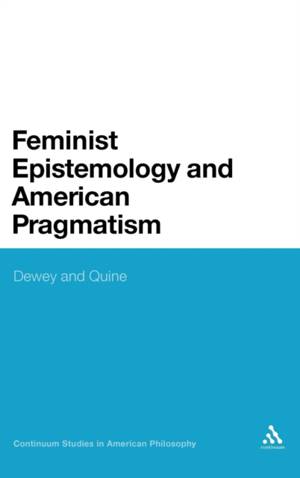
- Afhalen na 1 uur in een winkel met voorraad
- Gratis thuislevering in België vanaf € 30
- Ruim aanbod met 7 miljoen producten
- Afhalen na 1 uur in een winkel met voorraad
- Gratis thuislevering in België vanaf € 30
- Ruim aanbod met 7 miljoen producten
Omschrijving
Feminist philosophy identifies tensions within mainstream theories of knowledge. To create a more egalitarian epistemology, solutions to these problems have been as diverse as the traditions of philosophy out of which feminists continue to emerge.
This book considers two equally formidable approaches theorized by Louise Antony and Lynn Hankinson Nelson.
The American philosopher W.V.O. Quine locates knowledge as a branch of empirical science. Shuford shows how both Antony and Nelson use Quine's 'naturalized epistemology' to create empirically robust feminist epistemologies. However, Shuford argues that neither can include physical embodiment as an important epistemic variable. The book argues that John Dewey's theory of inquiry extends beyond Quine's insight that knowledge must be interrogated as an empirical matter. Because Dewey insists that all aspects of experience must be subject to the experimental openness that is the hallmark of scientific reasoning, Shuford concludes that physical embodiment must play an important part in knowledge claims.
Specificaties
Betrokkenen
- Auteur(s):
- Uitgeverij:
Inhoud
- Aantal bladzijden:
- 190
- Taal:
- Engels
- Reeks:
- Reeksnummer:
- nr. 17
Eigenschappen
- Productcode (EAN):
- 9780826498670
- Verschijningsdatum:
- 11/04/2010
- Uitvoering:
- Hardcover
- Formaat:
- Ongenaaid / garenloos gebonden
- Afmetingen:
- 155 mm x 234 mm
- Gewicht:
- 430 g

Alleen bij Standaard Boekhandel
Beoordelingen
We publiceren alleen reviews die voldoen aan de voorwaarden voor reviews. Bekijk onze voorwaarden voor reviews.











